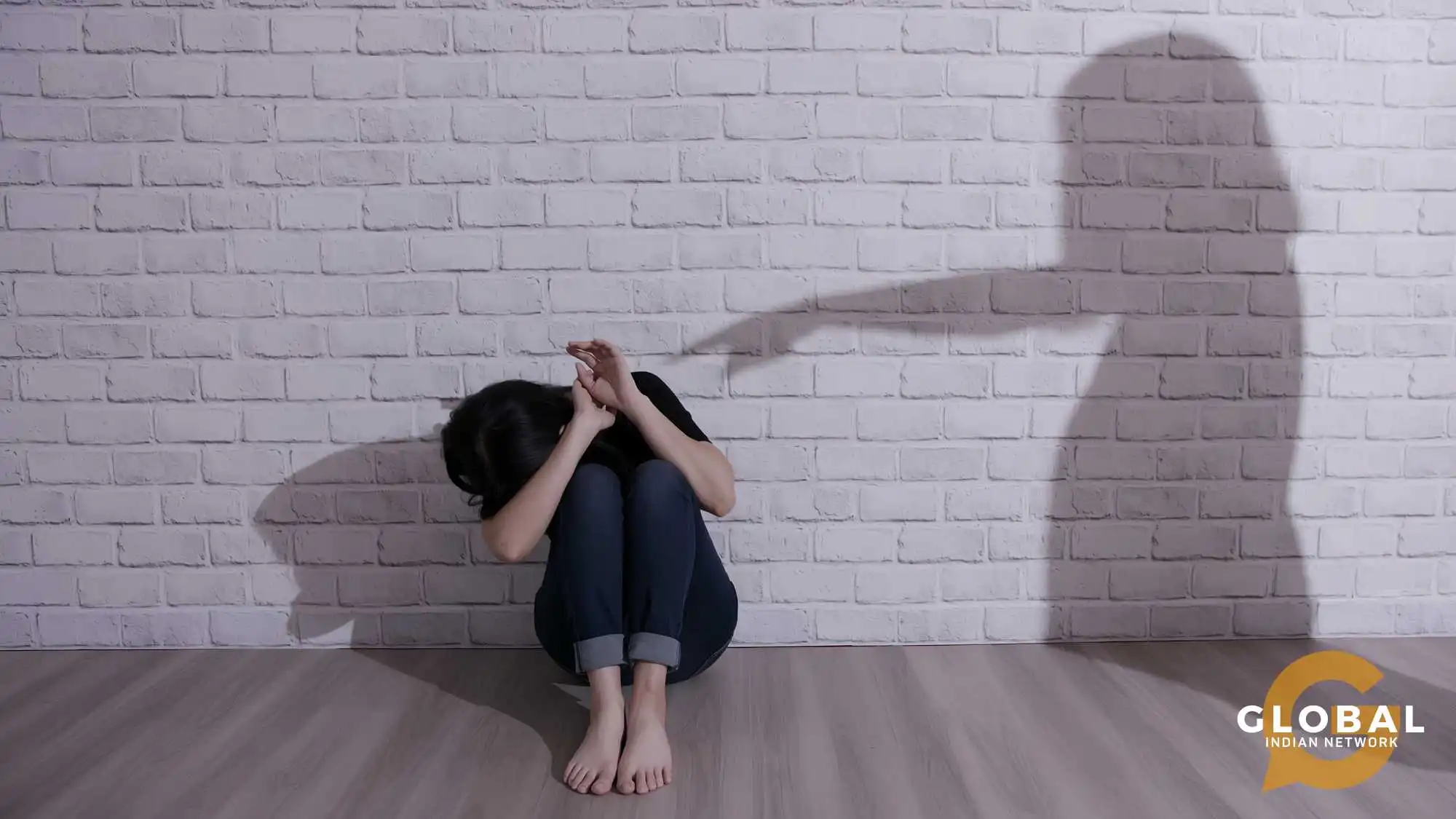From school-going students to working professionals, bullying is a widespread social issue that impacts the lives of people from all walks of life. While bullying is a problem that affects individuals on a global scale, the prevalence of bullying is particularly high in India, with research suggesting that up to 50-60% of children in India have faced bullying in the last decade.
More recently, a 12-year-old boy in Delhi became victim to a grim thrashing by his seniors, subsequently passing away a week later. And while the school refused to take accountability for the actions of the bullies on a technicality, why does Indian law do the same? The case leaves us wondering, is bullying illegal in India?
Table of Contents
Understanding Bullying
The American Psychological Association defines bullying as a form of aggressive behaviour in which someone intentionally and repeatedly causes another person injury or discomfort. It is very important to understand that bullying is usually not a one-off incident but rather a pattern of behaviour in which the bully aims to establish an imbalance of power.
Bullying can manifest in multiple ways, and the most common ways often include physical bullying (pushing, shoving, fighting, or other forms of physical harm); emotional bullying (manipulating emotions, undermining self-esteem, or social isolation); verbal bullying (includes teasing, name-calling, taunting, and using derogatory language to belittle others).
Another way in which youngsters often find themselves being harassed is through the ways of cyberbullying, essentially an online form of bullying which may include aggressive behaviour via social media apps, online messaging or e-mails. Furthermore, bullying may be direct or indirect, with the former being more detectable and apparent, while the latter is hidden from plain sight and can be via the means of spreading rumours or lies and exclusions from social happenings and groups.
Impacts of Bullying
Bullying has far-reaching impacts on the bullied, the bully, as well as any bystanders, with repercussions on the mental, physical as well as behavioural health of those involved.
Primarily, there is a detrimental effect on those bullied. These individuals may face immediate physical ramifications in the form of injuries, or they can have long-term effects, such as loss of sleep and headaches. On the emotional front, being bullied can cause multiple problems that persist over a long period, such as poor emotional adjustment, depression, anxiety, low self-esteem, low self-confidence and loneliness. The bullied may also face difficulties in forming new relationships and struggle in social situations.
Interestingly, researchers have found that bullying also has negative consequences for those who bully, with research suggesting that they may suffer from psychotic problems later in life. Additionally, being a bystander too may have some negative effects, with bystanders reporting feelings of anxiety or insecurity, as well as fear.
How Big of a Problem is Bullying in India?
In the last few years, bullying has caused several bright young lights to go out way before their time. These range from a 12-year-old being beaten to death in Dehradun to 2 college students committing suicide due to ragging by seniors in Chennai. While these may be the most extreme cases of bullying, these unfortunate incidents all point us to the fact that the rate of bullying has deteriorated in our nation, with recent research suggesting that up to 50-60% of youth face bullying of some kind, with over 26% of all boys and 19% of all girls reporting physical bullying.
It is quite odious to note that in many instances, bullying in India is forgiven in a shockingly easy manner, adding to people’s wonder about whether bullying is illegal in India. Unless there has been serious harm done by the assailant, they are often let off scot-free, which further perpetuates a culture where forms of bullying such as name-calling, teasing, or even minor physical harm are considered normal. Another factor that has accelerated the growth of bullying rates is the dive into technology.
The pandemic, which turned the world of education online, introduced a new challenge – children getting picked on whether or not they owned a smartphone. The newfound norm of having a presence in the online world has further accentuated bullying and has made cyberbullying the foremost method of bullying. Children are often thrown into the deep end of the digital world with no prior training or experience on what’s wrong or right, and this leads to them being hounded, furthering their anguish. And what’s worse is the state of current law about bullying in India, which dangles in a fragile middle ground of legality, making us all ponder, is bullying illegal in India?
Is Bullying Illegal in India?
Having discussed the various ramifications and the current state of bullying in India, we must ask the question, is bullying illegal in India or not? While it may not be a major shock to some, there is currently no law deeming bullying to be illegal in India. If above the age of 18, bullies who cause major harm to victims may be prosecuted by the IPC (Indian Penal Code) under various subsections, such as Abetment of Suicide under Section 306 of the IPC. However, at the school level, there is currently no Indian legislation to prevent bullying and no law to punish juvenile perpetrators.
At best, schools can set up anti-bullying committees to look into incidents of bullying and punish students, with the worst penalty being rustication. With the lack of laws being an obvious aggregator to instances of bullying in India, the UGC (University Grants Commission) and the CBSE (Central Board of Secondary Education) have both set out specific guidelines against bullying and ragging. These guidelines were based directly on a report given by the Raghavendran Committee to the Supreme Court in 2007. To best answer the question, ‘Is bullying illegal in India?’, we must first understand a few fundamentals.
Ragging vs. Bullying
Ragging is a subset of bullying which is immediately apparent. Unlike certain forms of bullying, which may be hidden or not noticeable, ragging is almost always discernible. Ragging may also be used as a term for roughhousing juniors as an initiation ritual across many colleges and universities, especially in India. Most often, ragging is a term that has more use at the post-secondary education or college level, while bullying is the term used for incidents that occur at the school level.
The Raghavendran Committee Report
The Raghavendran committee report was a comprehensive analysis of the then-current scenario of ragging in India. The committee was headed by Dr. R K Raghavendran, former director of the Central Bureau of Investigation (CBI), and submitted their findings to the Supreme Court in 2007. The report asked the question, “Is bullying illegal in India?” and outlined various steps that were to be taken to curb the prevalent issue of ragging and bullying across various institutions in the nation.
Some of the suggestions included setting up anti-bullying squads and cells at the college, university, and state levels, setting up toll-free helplines to assist victims, and recommending regulatory bodies consider the status of ragging and bullying when accrediting institutions. Following the submission of the report, the UGC and the CBSE set up their anti-bullying guidelines in 2009 and 2015, respectively.
Specific Guidelines in Schools
While the UGC regulations were released in 2009, CBSE’s version of the guidelines was only released in 2015. The guidelines made it mandatory to set up an anti-bullying committee in each school, as well as employ trained counsellors to provide support to any student affected by bullying. Furthermore, the guidelines suggested schools appoint student monitors who would serve as peer educators and identify any instances of violence or bullying among their fellow students.
The guidelines indicated that the onus to avoid bullying lay on the schools and that they must do everything in their power to avoid extreme cases that lead to severe physical harm or even death. Additionally, the guidelines placed a strong emphasis on morally educating children and developing positive mindsets through innovative educational initiatives. The guidelines also laid out a sanctions system that would take action against any bully, beginning with oral and written warnings and ending with rustication. Unlike the guidelines in colleges, there are no other ways to pursue legal actions against the perpetrators of bullying, leaving parents wondering, “Is bullying illegal in India?”
Specific Guidelines in Colleges
The University Grants Commission (UGC) released its anti-ragging and anti-bullying guidelines in 2009 following a revisitation of the original Raghavendran Committee report. While the 2009 UGC guidelines identified that bullying was not illegal in India, they set precedence to prosecute any perpetrators under various subsections of the Indian Penal Code (IPC). The guidelines, which were dubbed “UGC Regulation on Curbing the Menace of Ragging in Higher Educational Institutions, 2009”, successfully set up definitions of ragging and bullying, as well as outline measures for prevention in the future.
The regulations made it mandatory for all colleges to display messages against ragging and bullying in all official circulars, brochures and fliers. Additionally, all institutions were ordered to set up anti-ragging cells, establish a transparent complaint policy, increase CCTV coverage and security, as well as ask all new joiners to sign forms complying with anti-ragging terms at the time of admission. Alongside this, the UGC set up a toll-free anti-ragging and bullying helpline, which can be reached by dialling 1800-180-5522 (24×7).
Furthermore, the UGC picked up the responsibility to maintain a publicly available database of complaints and has made 3 amendments to the regulation, with the most notable one being in 2016, when they recognised gender and sexual identity as grounds for ragging and bullying. The regulations also laid out that miscreants would be penalised not just via the means of institutional punishments but could also be booked under various sections of the IPC if the offence was serious enough, once again asking the question, is bullying illegal in India?
Relevant Sections of the IPC
While technically, bullying is not illegal in India, students or individuals who engage in bullying or ragging and are over the age of 18 may be prosecuted under various sections of the Indian Penal Code. These include Subsection 506 (Punishment for criminal intimidation), Subsections 323-326 (Causing grievous hurt), Section 304 (All subsections dealing with culpable homicide), and Section 306 (Abetment of suicide).
Conclusion
To conclude, if you are still wondering, ‘Is bullying illegal in India?’, there are currently no laws that outlaw it. However, there do exist legal frameworks that provide avenues to penalise bullying, particularly through provisions in the Indian Penal Code. The UGC and CBSE have implemented guidelines to combat bullying and ragging, yet the absence of specific legislation leaves gaps in addressing it comprehensively. It is concerning to see the rising numbers of bullying in India, especially as we enter a new age of widespread technology, and efforts to address bullying must be multifaceted and cover all legal and moral grounds to protect those most vulnerable to it.
FAQs
Is Bullying Illegal in Schools?
While the CBSE has set up various guidelines and procedures to penalise those who flounder authority by bullying, there remains no legal method to follow up on bullies under the age of 18, thereby suggesting that bullying is not illegal in India.
What is the Difference between Harassment and Bullying?
Harassment may include singular or one-off offences, while bullying is considered a repeated pattern of behaviour that causes harm to an individual. While the Indian code has various laws against harassment, there are technically no such laws against bullying.
What to do if You or Someone You Know is getting Bullied?
If you or someone you know is being bullied, talk to someone you trust. Additionally, you can call the UGC 24×7 toll-free number, 1800-180-5522.










awesome sauce
This article has all the information I need! Amazing read.
[…] You Might Be Interested In: Is Bullying Illegal in India? Everything You Need to Know […]